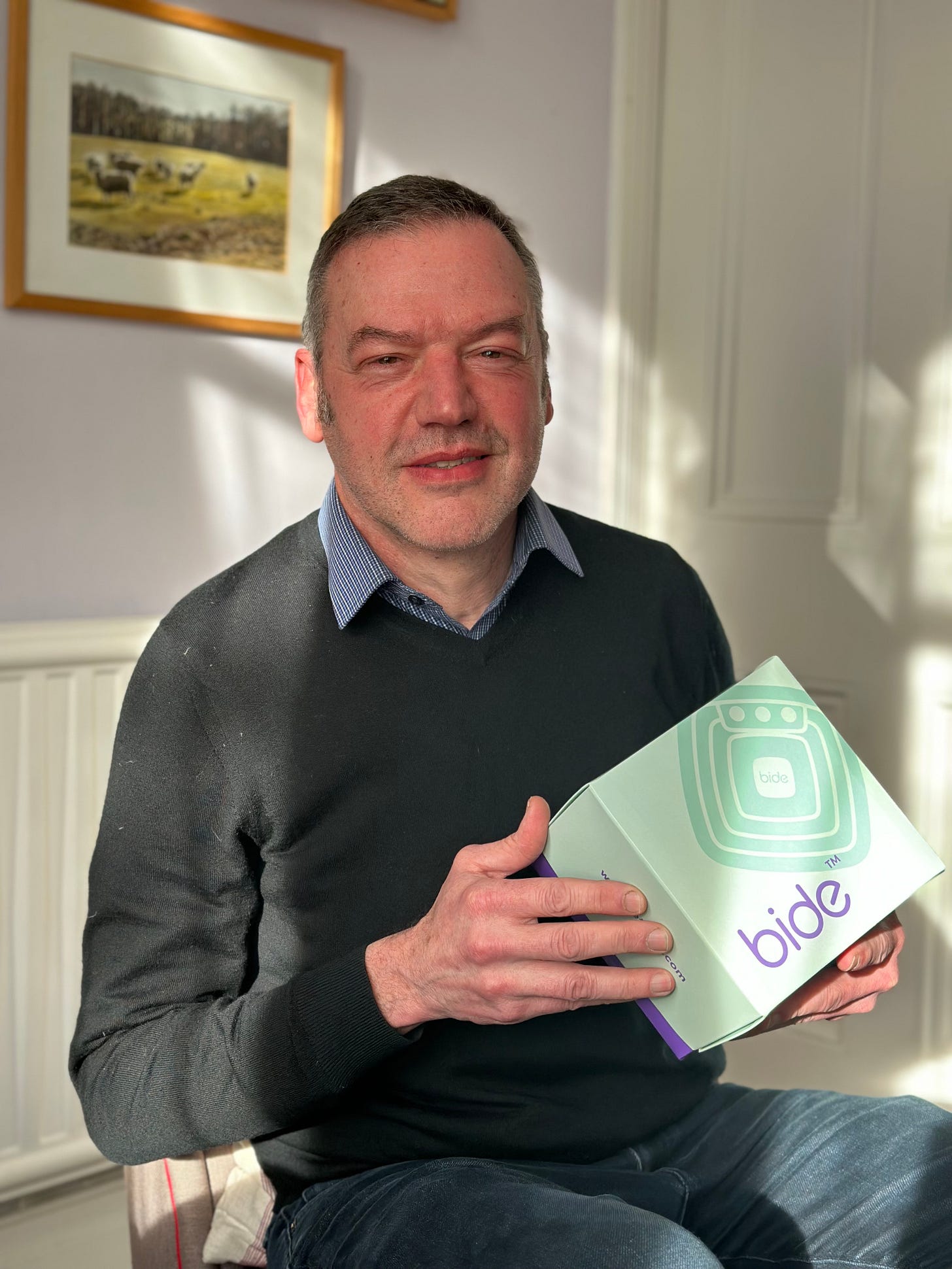In my sitting-room Tom Adler is listing the new skills he has had to learn over the last five years:“Looking for investors, pitching, intellectual property, manufacturing, regulation, knowing whether something is a medical device or not….” But at the end of all that, the 60 year old former GP told me, came one of the most exciting experiences of his life - making his first sale:
“Actually getting to a point where somebody, somewhere, has pressed a button that has lessened the balance in their own bank account and increased the balance in our bank account - it's crazy, it's ridiculous, but it's so fulfilling.”
Last month I wrote about Bide, the simple gadget Dr Adler invented to help cut the number of falls amongst elderly people and so save the NHS millions. He came up with the idea while seeing the consequences of falls amongst the patients at his surgery in Derbyshire’s Peak District. When he dropped in on me in London while visiting relatives nearby we discussed the hurdles faced by a doctor who has an innovative idea.
The biggest challenge seemed to be in marketing Bide - a device which doesn’t collect vast amounts of data, doesn’t use artificial intelligence, doesn’t even have an internet connection. And while there is plenty of quite advanced technology for fall detection, some of it probably involving AI, the idea of intervening to prevent falls in the first place seems to bemuse potential backers. One problem is assessing the impact of a device like Bide:
“It's difficult to measure. How many fewer falls does somebody have who lives in their own home and doesn't report their falls?”
This strikes me as highlighting a wider problem with moving the NHS towards a strategy of preventive medicine which many wise people think is a big part of the answer to the current crisis. Such a strategy involves investing now in policies which won’t pay off for many years and can’t be sold to voters in the way shiny new hospitals can - no wonder it’s struggled to attract the interest of politicians focussed on the next election or health service managers firefighting very current problems.
So far Tom Adler and his colleagues at Peak Medtek, the company behind Bide, have relied on government grants and friends and family for funding but they will now have to get investors on board if they are to scale up the business. That’s one reason why the trial soon to get underway in half a dozen care homes is important.
But they have at least managed to clear several regulatory hurdles: “We've invested some time and money into assessing whether Bide is a wellbeing device or a medical device. And as it stands, it's a wellbeing device because it's not giving medical advice.” That means it does not need MHRA approval, hence those exciting first sales after the Bide got its CE marking as a safe electrical product.
Things will get more complicated if a later version of the device starts collecting data but Tom seems confident that they will be able to deal with the added scrutiny when the time comes. It is that quiet confidence which must have got him through the past five years because launching a new medical product from an area most venture capitalists would struggle to find on a map sounds like a fool’s errand.
But he’s clear his ambitions for Bide are not limited to the UK: “We're looking to export to America and potentially Europe. These are massive markets.” He says what he calls “the passion word” is vital: “If you believe in your project and can see it helping people - people see that, it goes a long way.”
Dr Adler believes there are plenty of GPs like him out there with amazing ideas but hardly any of them see the light of day - “people just don't know how to do anything with them, and then they forget them.” If he is right and general practice is full of frustrated entrepreneurs unable to get a hearing for their ideas, perhaps it is time for a GP incubator of the kind set up by universities to commercialise the research of their academics. That could help boost productivity in the NHS but it would require something that seems to be in short supply - long term thinking.



